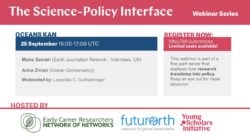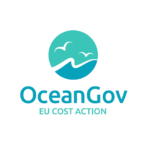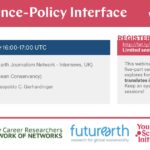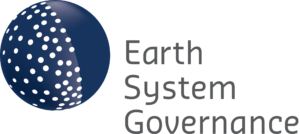We want your contributions for a special issue on ocean governance, as social science contribution to UN Decade of Ocean Science for Sustainable Development.
The Taskforce on Oceans Governance seeks to address the daunting multi-level challenge of oceans governance in the Anthropocene. It serves as platform in the Earth System Governance Project for oceans related research and will be actively cooperating with other research activities, as well as scientific and policy institutions, and ongoing policy processes related to the Oceans.
Call for Panels and Papers: “Ocean And Polar Politics” (EISA)
European International Studies Association, 13th Pan-European Conference on International Relations (Sofia, September 11-14, 2019), Call for Panels and Papers: Section “S31”: “Ocean And Polar Politics”. Submission Deadline for Panels and Papers coming soon: 28 February!
COST OceanGov – Land-Sea Interactions Training School in Constanta

As part of the activities of the European COST Action Ocean Governance for Sustainability (CA 15217) a Land-Sea Interactions Training School will be held at Ovidius University of Constanta, Romania. The workshop is aimed at early career researchers, which includes anyone who is pursuing a PhD or has received their PhD within the past 8 years.
Ocean Climate Geoengineering Roundtable
On February 5, 2019, the Initiative for Sustainable Energy Policy at Johns Hopkins University’s School of Advanced International Studies will host a roundtable to launch a new report published by the Centre for International Governance Innovation (CIGI), entitled Ocean Climate Geoengineering: An Assessment of Potential Risks, Benefits and Governance.
Future Earth OCEAN Knowledge Action Network & ECR NoN

These webinars, created by early careers for early careers, will aim at improving our understanding of interactions between science and policy, give recommendations on how to best communicate science to policy makers, and learn from the experience of senior researchers and professionals.
71 countries are negotiating a new biodiversity treaty. Here’s what you need to know.
Article in the Washington Post by Elizabeth Nyman, Elizabeth De Santo, Elizabeth Mendenhall, and Rachel Tiller (September 19, 2018) on the first round of negotiations for a new “international legally binding instrument … on the conservation and sustainable use of marine biological diversity of areas beyond national jurisdiction.”
Job Vacancy for Aquaculture Sector Specialist
Wageningen Economic Research Institute is looking for a talented colleague with a market- and customer-oriented attitude and a great affinity for applied scientific research that will support public and private policy makers with respect to the international position of aquaculture for food systems of delta metropoles. You will be conduting research in close contact with your clients and you based in The Hague, the Netherlands. For more information, see RER Aquaculture Sector Specialist EXTERN.
SOLAS Science & Society

The Surface Ocean – Lower Atmosphere Study (SOLAS) project aims to understand the biogeochemical-physical interactions and feedbacks between the ocean and atmosphere and is planning an e-mail list on the societal aspects of the research conducted within SOLAS.
New paper in PNAS: Beyond Panaceas in Fisheries Governance (Focus on ITQs)
Fisheries management has often been characterized by regulatory policies that result in panaceas—broad based policy solutions that are expected to address several problems, which result in unintended consequences. In fisheries governance, individual transferable quotas (ITQs) are one such example. Countries set an allowable harvest level reflecting environmental targets and then allocate individual quotas to fishers, which can then be exchanged. Proponents argue that this system is competitive and enables economic efficiency and environmentally sustainable outcomes. […]
2nd Part of the 24th Session of the International Seabed Authority

The second part of the 24th Session of the International Seabed Authority (ISA) will be held from 16-20 July 2018 for the Council, and from 23-27 July for the Assembly in Kingston, Jamaica. These meetings will be preceded by a meeting of the Legal and Technical Commission (LTC) (2-13 July) and of the Finance Committee (9-12 July).




Recent Comments